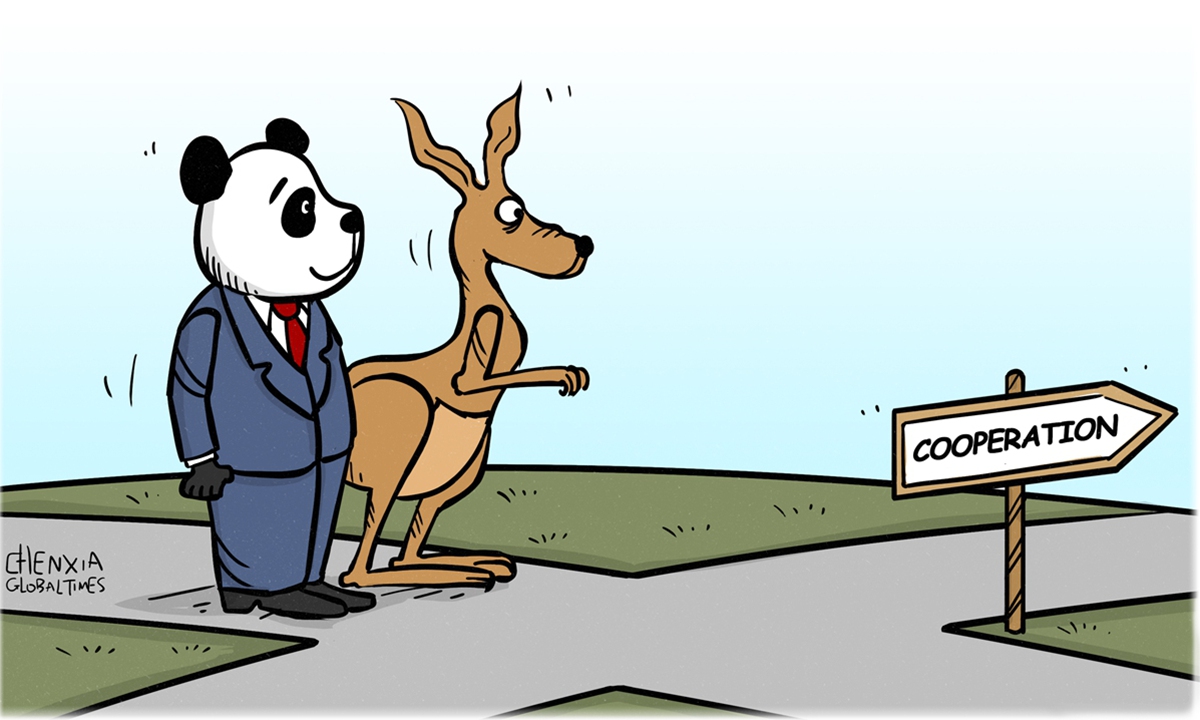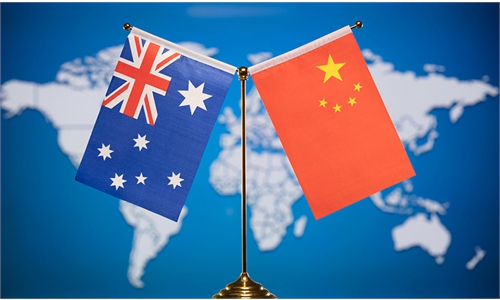
Illustration: Chen Xia/GT
On Tuesday, Liu Jianchao, head of the International Department of the Communist Party of China (CPC) Central Committee, delivered a speech at the University of Technology Sydney, during which he urged the Australian government and military to "act with great prudence" in deploying warships in the South China Sea after a recent confrontation between Chinese and Australian vessels. "Such a small incident could really escalate if it's not properly managed," he emphasized.
Liu's emphasis on "prudence" is, in fact, a call for a wise approach when dealing with matters concerning China's core interests, specifically issues related to Chinese national sovereignty. "Prudence" should become a crucial keyword and serve as a guiding principle for any country handling international relations. When China deals with other countries, it will also exercise prudence to tackle issues related to territorial sovereignty and integrity. Therefore, this suggestion is not exclusive to Australia; in reality, any country dealing with issues related to sovereign relations between nations should adhere to this guiding principle, Chen Hong, director of the Australian Studies Centre of East China Normal University, told the Global Times.
Australia should not assume it can freely create trouble near China. China poses no threat to Australia's national security, but Australia does by intruding into the South China Sea. If Australia continues its provocations and escalates the situation, there is a possibility of friction and conflict between China and Australia.
The possibility of small incidents escalating into larger conflicts is plausible, with historical precedents, said Yu Lei, professor at Shandong University. Therefore, it is essential to strictly adhere to international law, and refrain from ambiguous actions that may lead to unauthorized intrusions into another country's territory, waters, or airspace.
Since Australian Prime Minister Anthony Albanese took office in May last year, Australia has made relatively prudent efforts to improve relations with China, and the bilateral relationship has gradually stabilized. Ongoing efforts for improvement align with the common interests of both governments and their people. However, they face interference and pressure from certain anti-China forces. Although political and economic relations have improved, China-Australia military relations remain at low ebb. Australia still follows the US' Indo-Pacific strategy and takes provocative actions against China. It has voluntarily engaged in South China Sea patrols, collaborating with countries like the Philippines and the US to create trouble. Those moves are unwise.
Australia should not believe it can provoke China freely with US support. While China values its political and economic relations with Australia, it will not compromise on national sovereignty and security. Serving as a US hatchet man to provoke China and being an accomplice in the US pursuit of global dominance will inevitably harm Australia's own national interests. Australian politicians with rationality and wisdom should strive to avoid confrontation with China and to maintain regional stability and security.
Currently, the relationship between China and Australia has significantly improved. This achievement is hard-won and requires both sides to cherish and maintain it together. The improvement of China-Australia relations are in line with the interests of both countries and their peoples, and also contribute to peace, stability, and prosperity in the Asia-Pacific region. China-Australia bilateral relationship cannot afford any more turmoil and cannot go back to the old path. This should be a consensus between both sides, and particularly requires Australia to act with prudence.


